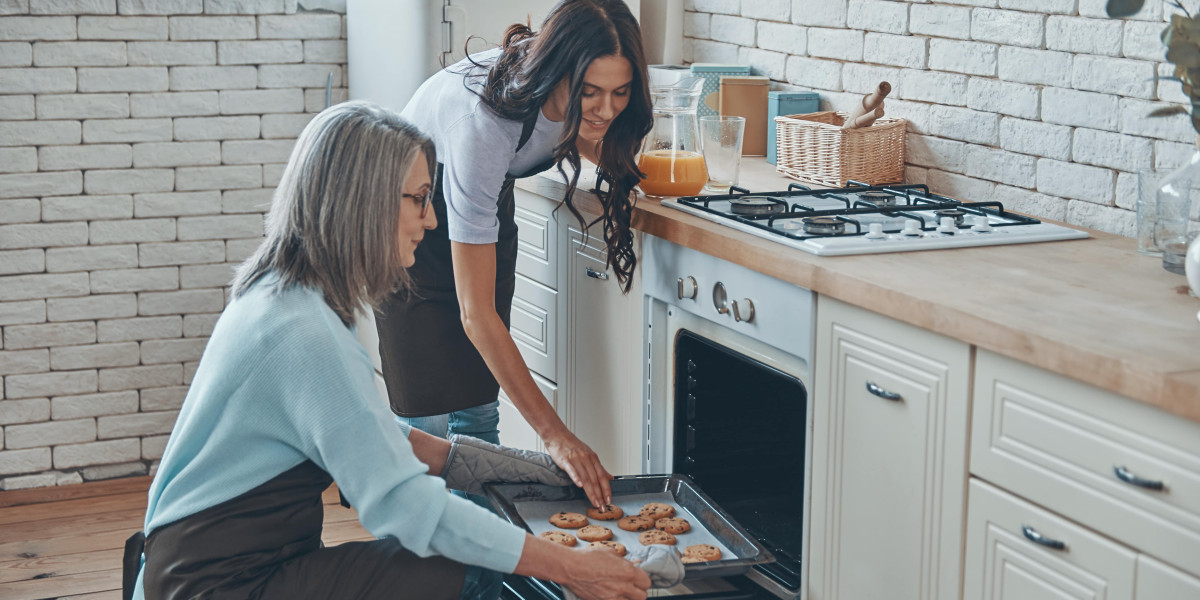The Rise of Integrated Cookers: A Comprehensive Guide
In the rapidly progressing world of kitchen technology, integrated cookers have ended up being increasingly popular among property owners and chefs alike. These multifunctional appliances perfectly mix into kitchen cabinets, offering both practicality and visual appeal. This post explores the benefits of integrated cookers, their types, installation considerations, and more.
What is an Integrated Cooker?
An integrated cooker is a built-in kitchen appliance designed to fit within a modular kitchen layout, using a tidy and cohesive appearance. Unlike standalone cookers, integrated cookers inhabit less area and often included extra functions that can improve the cooking experience.

Advantages of Integrated Cookers
- Area Efficiency: Integrated cookers are designed to fit comfortably into cabinets, conserving important floor space in cooking areas.
- Visual Appeal: With streamlined styles that match other kitchen appliances, they add to a structured and contemporary look.
- Versatility: Many integrated cookers come equipped with numerous cooking functions such as baking, barbecuing, and steaming, providing more choices for meal preparation.
- Improved Features: Integrated cookers frequently include advanced innovations, such as smart thermostats and self-cleaning choices, improving usability and convenience.
- Safety Enhancements: Many models feature functions such as child locks and automatic shutoff systems, making them much safer for household usage.
Types of Integrated Cookers
There is a broad series of integrated cookers available, each customized to particular cooking styles and preferences:
1. Integrated Ovens
- Standard Ovens: Regular ovens that offer constant heating perfect for baking and roasting.
- Convection Ovens: These utilize fans to flow hot air, cooking food more equally and quickly.
- Steam Ovens: Utilize steam technology to retain moisture and vitamins in food while cooking.
2. Integrated Induction Hobs
- Induction Cooktops: Provide fast and effective cooking by utilizing electro-magnetic fields to heat pots and pans directly.
- Ceramic Hobs: Featuring a smooth glass surface area, they heat up rapidly and provide simple cleansing.
3. Integrated Microwaves
- Built-in Microwaves: These can be set up into cabinets and typically come with sophisticated functions like grilling and steaming options.
Crucial Considerations for Installation
When selecting an integrated cooker, specific installation factors to consider need to be considered to make sure maximum efficiency and security.
- Space Requirements: Measure the offered area in the kitchen to choose the best size of the cooker.
- Ventilation Needs: Proper ventilation is crucial, particularly for gas cookers, to prevent the buildup of hazardous gases.
- Electric Supply: Ensure that the home's electrical system can handle the power requirements of the brand-new integrated device.
Installation Steps
- Planning: Sketch out the kitchen layout, including the preferred space for the integrated cooker.
- Measurement: Accurately determine the dimensions to ensure appropriate fit.
- Preparation: Prepare the surrounding cabinetry and electrical connections based on the producer's guidelines.
- Setup: Follow the maker's setup instructions or hire a professional for a smooth setup.
Maintenance of Integrated Cookers
Regular Cleaning
- Clean Surfaces: Utilize a damp cloth to routinely wipe down surface areas to prevent buildup.
- Deep Clean: Conduct a deep clean using appropriate appliances cleaners regularly.
Routine Checks
- Check Seals: Check the door seals to guarantee they are undamaged to maintain cooking efficiency.
- Test Functions: Regularly test all cooking functions to guarantee they operate correctly.
FAQs
What are the benefits of integrated cookers compared to standalone models?
Integrated cookers conserve area, enhance kitchen looks, and typically use innovative cooking features that standalone designs may not consist of.
Can I install an integrated cooker myself?
While some property owners may have the ability to set up an integrated cooker, it's suggested to engage an expert to guarantee appropriate setup and adherence to security requirements.
Are integrated cookers more expensive than conventional cookers?
Integrated cookers can come at a higher rate point due to their style and advanced functions, but they can provide excellent value in regards to space-saving and increased functionality.
Do integrated cookers need special upkeep?
While they don't need any customized maintenance, keeping them tidy and regularly examining for issues, such as malfunctioning elements, is crucial.
Are all integrated cookers energy-efficient?
Many modern-day integrated cookers are designed to be energy-efficient, utilizing innovations that reduce energy consumption while providing effective cooking performance.
Integrated cookers represent an exceptional improvement in kitchen innovation, integrating performance with visual appeal. Their flexibility and space-saving styles make them a popular option for modern kitchens. By understanding the various types available, setup factors to consider, and maintenance needs, customers can make educated decisions when picking an integrated Cooker Integrated that perfectly suits their cooking lifestyle.
With the ongoing developments in kitchen appliances, integrated cookers are likely to remain in high demand, catering to the progressing requirements of home cooks and professional chefs alike.



